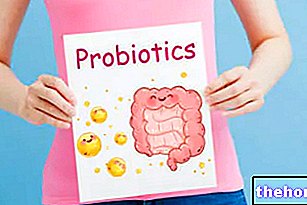before bed, the night before. This can be especially common and normal if the meal was high in fat or protein. These macronutrients can slow stomach emptying and keep you feeling full for longer, even the next morning. Protein, in particular, can also significantly alter the levels of hormones that regulate hunger and appetite, including ghrelin, glucagon-like peptide-1, peptide YY, and cholecystokinin. levels of certain hormones associated with appetite and the feeling of fullness, leading to a decrease in hunger.
, the levels of different hormones fluctuate. This can interfere with the need to eat and therefore with the appetite upon waking. In particular, research shows that adrenaline levels tend to be higher in the morning. This hormone is able to reduce appetite by slowing the rate with which empties the stomach and by increasing the breakdown of carbohydrates stored in the liver and muscles to provide energy to the body. In addition, one study found that levels of ghrelin, the hunger hormone, were lower in the morning than in the evening first. This could also explain one of the reasons for morning loss. Levels of leptin, a hormone that promotes satiety, can also be higher in the morning.
Did you know that pregnancy ...
Morning sickness is a disorder that occurs in about 80% of pregnant women. Although nausea can occur at any time of the day, it often occurs in the morning, hence its name. In most cases, it gets better. or disappears after 14 weeks of pregnancy Morning sickness reduces hunger and causes bloating and delayed stomach emptying.
, fatigue and apathy, depression can cause changes in appetite and affect the levels of certain stress hormones that reduce the feeling of hunger. Even a common cold or the flu is related to lack of appetite at breakfast. In some cases, these infections they also limit the senses of taste and smell, which can reduce appetite.
Other causes of loss of appetite in the morning:
- Taking some medications. Many types of medications, including diuretics and antibiotics, can reduce hunger and appetite.
- Old age. Decreased appetite is common among the elderly and can be caused by changes in energy needs, hormones, taste or smell, and social circumstances.
- Thyroid dysfunction. Loss of appetite can be a sign of hypothyroidism or decreased thyroid function.
- Ovulation. Estrogen, a female sex hormone that increases during ovulation, can reduce appetite.
- Chronic pathologies. Certain conditions such as liver disease, heart failure, kidney disease, HIV, and cancer can cause loss of appetite.
Offer different alternatives for a healthy and balanced breakfast that entices you to eat in the morning:
- yogurt with berries and muesli
- oatmeal, sliced bananas and honey
- smoothie with spinach, fresh fruit
- omelette with mushrooms, tomatoes and cheese (here the cheeses suitable for celiacs)
- avocado and egg toast
To build muscle, it's best to eat protein at breakfast.




























